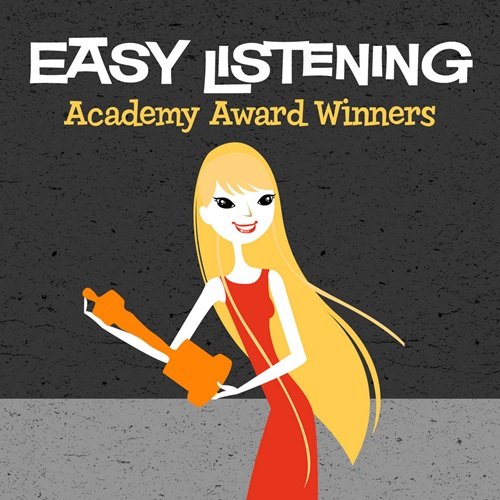VA - That'll Flat ... Git It! Vol. 11: Rockabilly From The Vaults Of Mercury Records (1998)
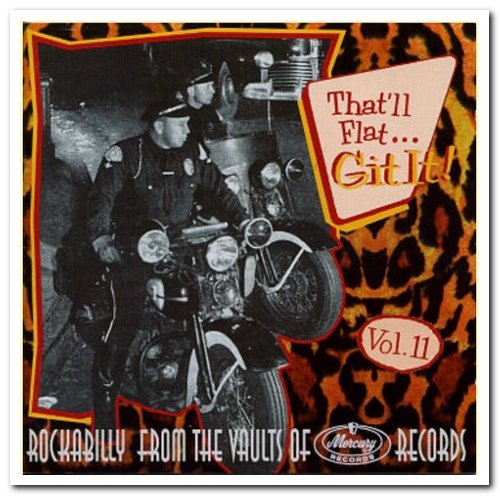
Artist: Various Artists
Title: That'll Flat ... Git It! Vol. 11: Rockabilly From The Vaults Of Mercury Records
Year Of Release: 1998
Label: Bear Family Records [BCD 16101 AH]
Genre: Rockabilly, Rock'n'Roll
Quality: 320 kbps / FLAC (tracks+cue, scans) / WAV (tracks, scans)
Total Time: 62:57
Total Size: 171 mb / 232 mb / 663 mb
WebSite: Album Preview
Title: That'll Flat ... Git It! Vol. 11: Rockabilly From The Vaults Of Mercury Records
Year Of Release: 1998
Label: Bear Family Records [BCD 16101 AH]
Genre: Rockabilly, Rock'n'Roll
Quality: 320 kbps / FLAC (tracks+cue, scans) / WAV (tracks, scans)
Total Time: 62:57
Total Size: 171 mb / 232 mb / 663 mb
WebSite: Album Preview
Chicago-based Mercury Records - named after the make of car - was founded in 1945 by Irving B. Green, an industrial engineer who designed the industry's first automatic pressing plant, and Berle Adams, who managed Louis Jordan, the biggest attraction in black music. Promotion was headed by Art Talmadge, later Vice-President of A&R.
Green, whose father owned National Records, noticed that major labels had cut back on minority interest music because shellac, used in record manufacture and wartime munitions, was in short supply. He imported large quantities of the crucial ingredient from India and began concentrating on R&B with a slick, jazz-tinged orientation. The music didn't require much orchestration or arrangement, and money saved on recording costs could be spent on manufacturing, distribution and promotion. A couple of recent R&B boxed sets have served to illustrate Mercury's huge success with that strategy; the label became Atlantic's closest competitor with over 40 R&B hits by Dinah Washington alone.
Mitch Miller's productions for Tony Martin and Frankie Laine added mammoth pop hits to the catalogue and the company was soon firmly ensconced among the five or six major labels. They helped pioneer new techniques like multi-tracking (eg Patti Page's mega-hit, Tennessee Waltz) and marketed some of the first 45s with a zealousness that impressed industry hustlers like Buck Ram. "Mercury was a running company" Ram once confided. "Boy! The minute they smelled a hit they covered all the jocks. They really knew what to do with the satchel." Ram's group, the Platters, had the first R&B hit to reach #1 Pop.
Mercury also dabbled in country music, becoming the first label to appoint a full-time A&R man in Nashville. When Murray Nash, who signed Flatt & Scruggs, resigned in 1951, the company took on Walter D. Kilpatrick, a former marine and Capitol salesman from Kannapolis, North Carolina. (Nash, who joined Acuff-Rose, subsequently pitched songs, including Slip, Slip, Slippin' In, to his successor).
In some ways, Kilpatrick, who supervised sessions by Curtis Gordon, Eddie Bond, George & Earl and Billy Wallace, is the hero of this anthology even though he didn't much care for the music. "I thought it was the Devil's workshop" he told Colin Escott. In common with other major labels, Mercury's executives had difficulty understanding a grass-roots movement like rockabilly and, apart from Love Bug Crawl, none of the records on this set made any impression on the charts.
Kilpatrick was impressed by Elvis Presley ("You know," he told Arnold Shaw "we've been watching this kid. He's dynamite in personals ...") but Irving Green turned down Sam Phillips's asking price. The company also dumped Conway Twitty just before he made it. As Kilpatrick indicated to Escott, the label lacked a commitment to C&W-based music: "I could never get an act off the ground in a really big way .... Country music is an attitude and Mercury was pop and R&B. The sales force wasn't orientated to country - they went where the buck was."
Fifty years on and the Mercury imprint still survives, albeit as a subsidiary of the Dutch-based Polygram company.
Green, whose father owned National Records, noticed that major labels had cut back on minority interest music because shellac, used in record manufacture and wartime munitions, was in short supply. He imported large quantities of the crucial ingredient from India and began concentrating on R&B with a slick, jazz-tinged orientation. The music didn't require much orchestration or arrangement, and money saved on recording costs could be spent on manufacturing, distribution and promotion. A couple of recent R&B boxed sets have served to illustrate Mercury's huge success with that strategy; the label became Atlantic's closest competitor with over 40 R&B hits by Dinah Washington alone.
Mitch Miller's productions for Tony Martin and Frankie Laine added mammoth pop hits to the catalogue and the company was soon firmly ensconced among the five or six major labels. They helped pioneer new techniques like multi-tracking (eg Patti Page's mega-hit, Tennessee Waltz) and marketed some of the first 45s with a zealousness that impressed industry hustlers like Buck Ram. "Mercury was a running company" Ram once confided. "Boy! The minute they smelled a hit they covered all the jocks. They really knew what to do with the satchel." Ram's group, the Platters, had the first R&B hit to reach #1 Pop.
Mercury also dabbled in country music, becoming the first label to appoint a full-time A&R man in Nashville. When Murray Nash, who signed Flatt & Scruggs, resigned in 1951, the company took on Walter D. Kilpatrick, a former marine and Capitol salesman from Kannapolis, North Carolina. (Nash, who joined Acuff-Rose, subsequently pitched songs, including Slip, Slip, Slippin' In, to his successor).
In some ways, Kilpatrick, who supervised sessions by Curtis Gordon, Eddie Bond, George & Earl and Billy Wallace, is the hero of this anthology even though he didn't much care for the music. "I thought it was the Devil's workshop" he told Colin Escott. In common with other major labels, Mercury's executives had difficulty understanding a grass-roots movement like rockabilly and, apart from Love Bug Crawl, none of the records on this set made any impression on the charts.
Kilpatrick was impressed by Elvis Presley ("You know," he told Arnold Shaw "we've been watching this kid. He's dynamite in personals ...") but Irving Green turned down Sam Phillips's asking price. The company also dumped Conway Twitty just before he made it. As Kilpatrick indicated to Escott, the label lacked a commitment to C&W-based music: "I could never get an act off the ground in a really big way .... Country music is an attitude and Mercury was pop and R&B. The sales force wasn't orientated to country - they went where the buck was."
Fifty years on and the Mercury imprint still survives, albeit as a subsidiary of the Dutch-based Polygram company.
:: TRACKLIST ::
01 - Eddie Bond - Rockin' Daddy
02 - Sleepy LaBeef - All the Time
03 - Jimmy Edwards - Love Bug Crawl
04 - Billy Wallace and The Bama Drifters - That's My Reward
05 - Johnny T Talley - (I've Changed My) Wild Mind
06 - Roy Moss - You're My Big Baby Now
07 - Eddie Bond - Slip Slip Slippin' In
08 - George Benson & Earl Klugh - Done Gone
09 - Curtis Gordon - Draggin'
10 - Billy Wallace and The Bama Drifters - What I'll Do
11 - Roy Moss - You Don't Know My Mind
12 - Rudy Grayzell - Let's Get Wild
13 - Eddie Bond - Flip Flop Mama
14 - Royce Porter - Yes I Do
15 - Thomas Wayne - You're the One That Done It
16 - Billy Wallace - Burning the Wind
17 - Curtis Gordon - Mobile Alabama
18 - Roy Moss - Corrine, Corrina
19 - Eddie Bond - Boppin' Bonnie
20 - Johnny T Talley - Lonesome Train
21 - Bing Day - I Can't Help It
22 - Billy Wallace and The Bama Drifters - Mean, Mistreatin' Baby
23 - George Benson & Earl Klugh - Better, Stop, Look and Listen
24 - Jackie Cray - Maybelle
25 - Curtis Gordon - Sitting on the Top of the World
26 - Don Johnston - Born to Love One Woman
27 - Connie Dycus - Rock a Bye Baby Rock
28 - Johnny Jay - Sugar Doll
29 - Roy Moss - You Nearly Lose Your Mind
30 - The Hi-Liters - Dance Me to Death
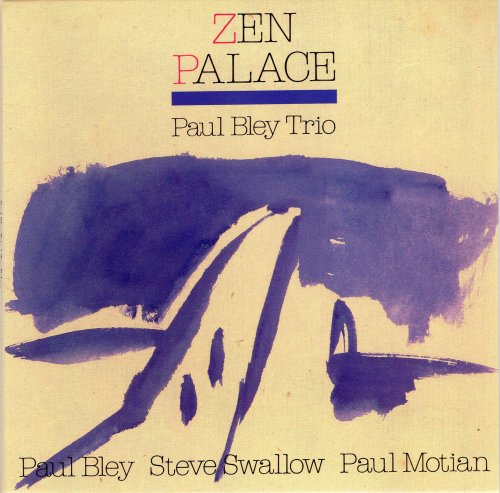
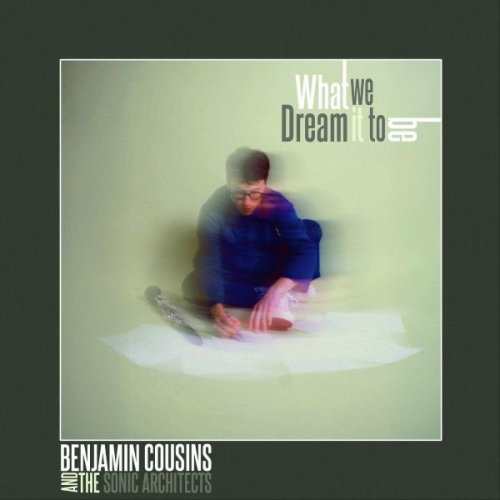
![Lou Bennet, André Condouant, Rupert Clemendore - Live at the Golden Circle 1963 - Day 1 (2026) [Hi-Res] Lou Bennet, André Condouant, Rupert Clemendore - Live at the Golden Circle 1963 - Day 1 (2026) [Hi-Res]](https://www.dibpic.com/uploads/posts/2026-01/1768412354_cp8fpl08qki3m_600.jpg)

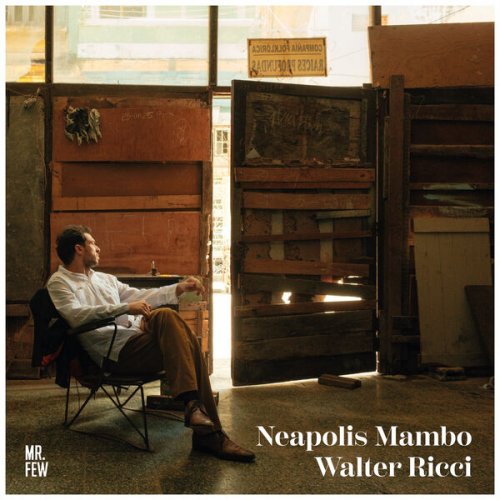
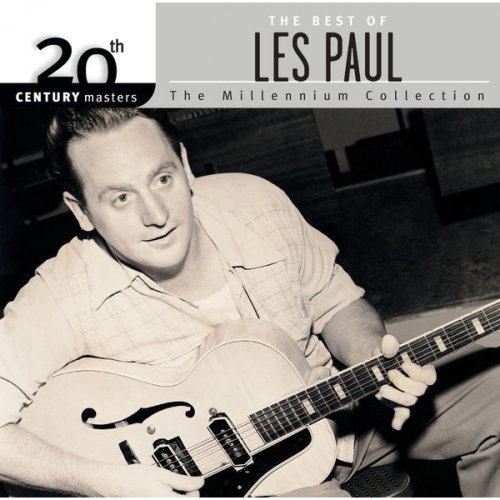
![Haeun Joo - Just Gravity (2026) [Hi-Res] Haeun Joo - Just Gravity (2026) [Hi-Res]](https://img.israbox.com/img/2026-01/16/zfy1b4k945wo2xfjdp56kv3ai.jpg)
